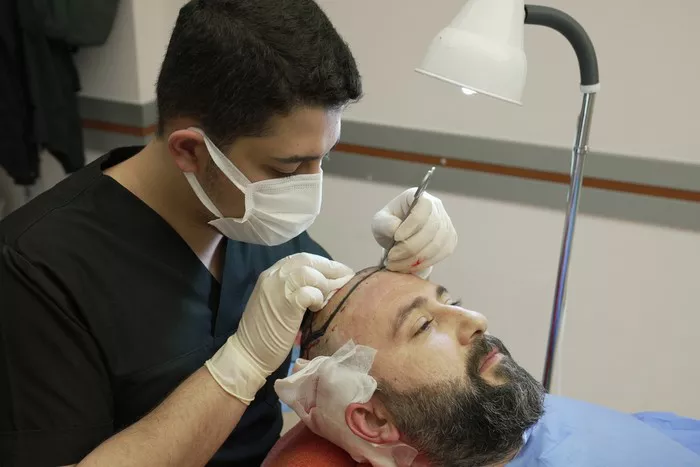Undergoing a hair transplant is a significant step toward regaining lost hair and confidence. While the surgical procedure is effective, promoting natural hair growth post-transplant is equally crucial. Natural remedies play a pivotal role in nurturing the newly transplanted hair and ensuring optimal results. In this article, we will explore various natural remedies that aid in hair growth after a transplant.
1. Balanced Diet and Hydration
Maintaining a balanced and nutritious diet is fundamental to overall health, including hair growth. A diet rich in vitamins, minerals, and proteins supports the health of your hair follicles. Foods like fish, eggs, nuts, fruits, and vegetables provide essential nutrients that contribute to hair strength and vitality. Additionally, staying well-hydrated is crucial for overall bodily functions, including the health of your hair.
2. Scalp Massage with Natural Oils
Regular scalp massages with natural oils can stimulate blood circulation and nourish hair follicles. Oils like coconut, almond, and jojoba are known for their moisturizing and hair-strengthening properties. Gently massaging these oils onto the scalp not only enhances blood flow but also helps in the absorption of nutrients, promoting healthier hair growth.
3. Aloe Vera for Soothing and Healing
Aloe vera is renowned for its soothing and healing properties. Applying aloe vera gel to the scalp can help reduce inflammation and irritation after a hair transplant. It also has enzymes that promote healthy hair growth and maintain the pH balance of the scalp.
4. Herbal Supplements for Hair Health
Incorporating herbal supplements into your routine can complement the natural growth of transplanted hair. Supplements like saw palmetto, ginseng, and green tea extract have been associated with promoting hair growth and preventing hair loss. However, it’s essential to consult with a healthcare professional before adding any supplements to your regimen.
5. Avoiding Harsh Chemicals
Post-transplant, it’s crucial to avoid harsh chemicals that can damage the newly transplanted hair and irritate the scalp. Choose mild and sulfate-free shampoos and conditioners to maintain a gentle and nurturing environment for your hair.
6. Regular Exercise and Stress Management
Exercise improves blood circulation, including to the scalp, which can stimulate hair follicles. Additionally, managing stress is vital as high stress levels can contribute to hair loss. Practices like yoga and meditation can be effective in reducing stress and promoting overall well-being.
Frequently Asked Questions
1. How soon can I start using natural remedies after a hair transplant?
It is advisable to wait for at least two weeks after the transplant before introducing any natural remedies. This allows the transplanted hair follicles to take root and reduces the risk of irritation or infection.
2. Can I use multiple natural remedies simultaneously?
While many natural remedies complement each other, it’s essential to introduce them gradually. Start with one or two remedies at a time to monitor their effects and ensure they don’t cause any adverse reactions.
3. Are there any specific foods I should avoid for better hair growth?
While a balanced diet is generally beneficial, it’s advisable to limit the intake of processed foods, excessive sugar, and unhealthy fats. These can contribute to inflammation and negatively impact hair health.
4. How long does it take to see noticeable results from natural remedies?
The timeline for results varies from person to person. Generally, visible improvements can be observed within a few months of consistently incorporating natural remedies into your routine.
5. Can I color or style my transplanted hair?
It’s recommended to wait at least three weeks post-transplant before coloring or styling your hair. When you do, choose gentle products and avoid excessive heat or tension on the newly transplanted area.
6. Are there specific natural remedies that work best for everyone?
Individual responses to natural remedies can vary. What works well for one person may not have the same effect on another. It’s essential to personalize your approach and be patient as you discover the most effective combination for your unique hair needs.
In conclusion, a holistic approach that includes a balanced diet, scalp care, and stress management is key to fostering natural hair growth after a transplant. By incorporating these natural remedies and following post-transplant care guidelines, you can enhance the success of your hair transplant and enjoy a fuller, healthier head of hair.

